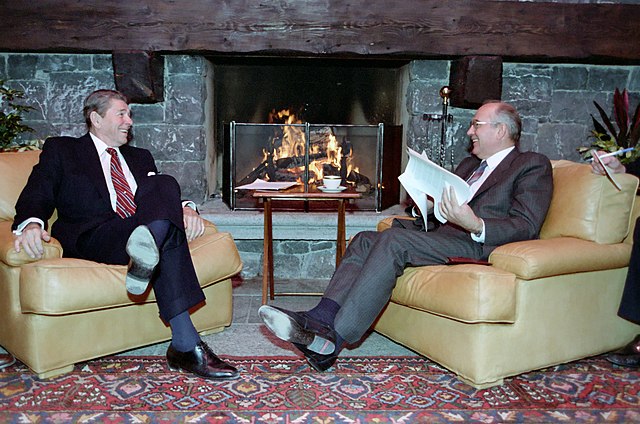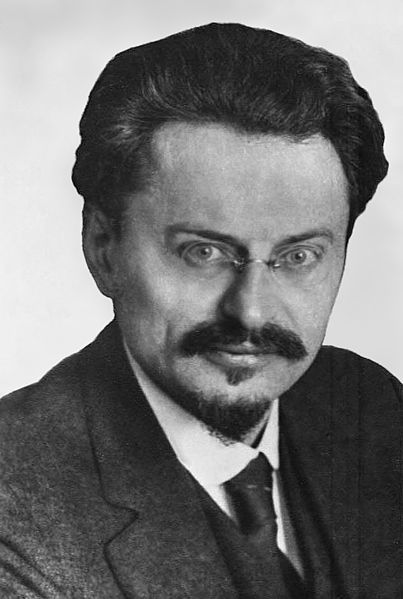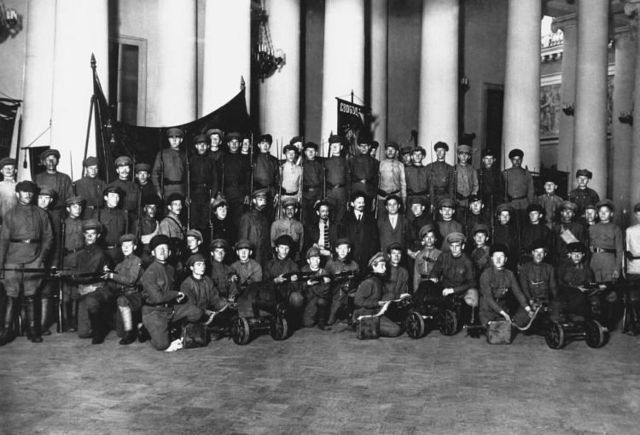Détente is the relaxation of strained relations, especially political ones, through verbal communication. The diplomacy term originates from around 1912, when France and Germany tried unsuccessfully to reduce tensions.
Alexei Kosygin and Lyndon B. Johnson at the Glassboro Summit Conference in 1967
Gerald Ford and Leonid Brezhnev signing a joint communiqué on the SALT I treaty during the Vladivostok Summit in 1974
The Apollo–Soyuz crew in 1975
Ronald Reagan and Mikhail Gorbachev in 1985
The Union of Soviet Socialist Republics (USSR), commonly known as the Soviet Union, was a transcontinental country that spanned much of Eurasia from 1922 to 1991. It was the largest country in the world by area, extending across eleven time zones and sharing land borders with twelve countries. A successor state to the Russian Empire, the country was nominally organized as a federal union of fifteen national republics, the largest and most populous of which was the Russian SFSR; in practice both its government and economy were highly centralized until its final years. It was the world's third-most populous country and Europe's most populous country. As a one-party state governed by the Communist Party of the Soviet Union, it was a flagship communist state. Its capital as well its largest city was Moscow. Other highly urbanized centers were Leningrad, Kiev, Tashkent and Baku.
Vladimir Lenin, founder of the Soviet Union and the leader of the Bolsheviks
Leon Trotsky, founder of the Red Army and a key figure in the October Revolution
Lenin, Trotsky and Kamenev celebrating the second anniversary of the October Revolution
Dissolution of the elected Russian Constituent Assembly by the Bolsheviks on 6 January 1918








